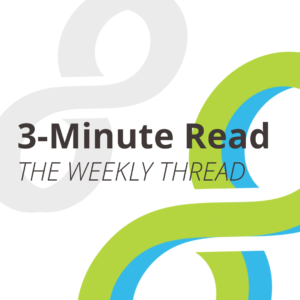The Contracting Conundrum: Addressing Contracting Issues in U-I Partnerships
 Oct. 29, 2024—Throughout its nearly 20-year history, UIDP has addressed myriad challenges in university-industry partnerships, although one key topic remains top of mind: contracting. The issue prompted the development of the Contract Accords, a foundational UIDP resource. Despite attempts across the research landscape to speed the time to an agreement, contracting remains a contentious process. Why haven’t we made better progress, and what can we do to improve it?
Oct. 29, 2024—Throughout its nearly 20-year history, UIDP has addressed myriad challenges in university-industry partnerships, although one key topic remains top of mind: contracting. The issue prompted the development of the Contract Accords, a foundational UIDP resource. Despite attempts across the research landscape to speed the time to an agreement, contracting remains a contentious process. Why haven’t we made better progress, and what can we do to improve it?
The current landscape
Many attempts have been made to improve sponsored research contracting, from more and better training for contracting professionals to template agreements One approach, the Lambert Toolkit (published by the U.K. government in 2005), attempted to streamline the process using various template agreements, along with recommended ways to modify the agreements to fit collaborations. But a report on their impact found that less than 15% of collaborative research agreements in the U.K. used the templates without major customization. (Read more about the Lambert Toolkit and other template agreements in previous 3-Minute Reads here and here.)
Despite helpful guidance published by organizations (including UIDP) over the years, there is still inconsistent knowledge, training, and experience with contract negotiation across the research enterprise. Many organizations have their own policies and practices, but these vary widely from one organization to another. Potential partners may lack a critical mass of skilled negotiators who possess the needed experience to effectively get to a final agreement that both sides embrace. Additionally, the size of involved organizations correlates with their resources and ability to negotiate effectively, which means the barrier to entry for smaller companies and institutions is much higher than their larger counterparts.
The lack of common standards and impactful training makes it challenging for anyone entering the field to quickly and comprehensively learn the discipline. The community desperately needs more qualified administrators. Organizations that can make a difference are stepping up to increase the number of trained negotiators. The NSF Growing Research Access for Nationally Transformative Equity and Diversity (GRANTED) initiative aims to address this talent gap in the research community by strengthening research support and capacity, particularly at institutions with less access to resources. GRANTED aims to address systemic barriers and build research infrastructure to support an informed research professional network across the country.
With no tried-and-true way to negotiate projects efficiently, the process may drag out for months, delaying the project’s start and putting timelines for both parties at risk. At best, this is an irritating inconvenience. At worst, contracting delays wreak havoc with industry budget periods and project timelines, grad student research graduation requirements, or the ability to meet a need in the marketplace. Protracted contracting negotiations can also exert pressure on one or both partners to make rushed decisions. Agreeing to inequitable terms under duress often leads to suboptimal agreements or, at the very least, ill-will between the partners. This is a recipe for disaster.
Moving forward
Considering the long history of sponsored research partnerships, progress in creating contracting efficiencies has been limited. Standardization and broad adoption of contracting processes are needed to move collaborations forward faster and with less conflict. This is a daunting task, as the needs and outcomes of research collaborations change from project to project and organization to organization.
As technology continues to evolve, new tools may emerge to help in the contracting process. Already, artificial intelligence (AI) has been used across sectors to aid in day-to-day functions, and with careful use, could be used to help draft contracts, support administrative tasks, or assist with negotiations by analyzing terms.
UIDP is dedicated to producing resources and tools to help organizations refine and standardize their research contracting processes. From the Contract Accords to the Contracting Essentials webinar series, UIDP has resources to help your organization navigate sponsored research projects. The new Strengthen & Modernize U-I Partnerships initiative is a way for you to contribute to the future of contracting processes and other issues impacting cross-sector collaborations. Addressing roadblocks in administrative and regulatory matters is a key focus area in this initiative. Share your strategies and approaches to streamline contracting and increase the ROI for cross-sector partnerships for everyone.
Why it matters
Contracting remains one of the most challenging aspects of building productive relationships. Despite ongoing attempts to streamline the process, pernicious challenges that lead to rushed decisions, ill will, weakened partnerships, and diminished outcomes persist. UIDP offers many resources to help your organization improve its contracting process, but surmounting these obstacles will take a community-wide effort. Sharing your knowledge, experience, and perspective through UIDP’s Strengthen & Modernize U-I Partnerships initiative—or by hosting a listening session in your region—will help inform future directions to address this overarching challenge.
We want to hear from you. What can we do to streamline the contracting process? Let us know on LinkedIn.


